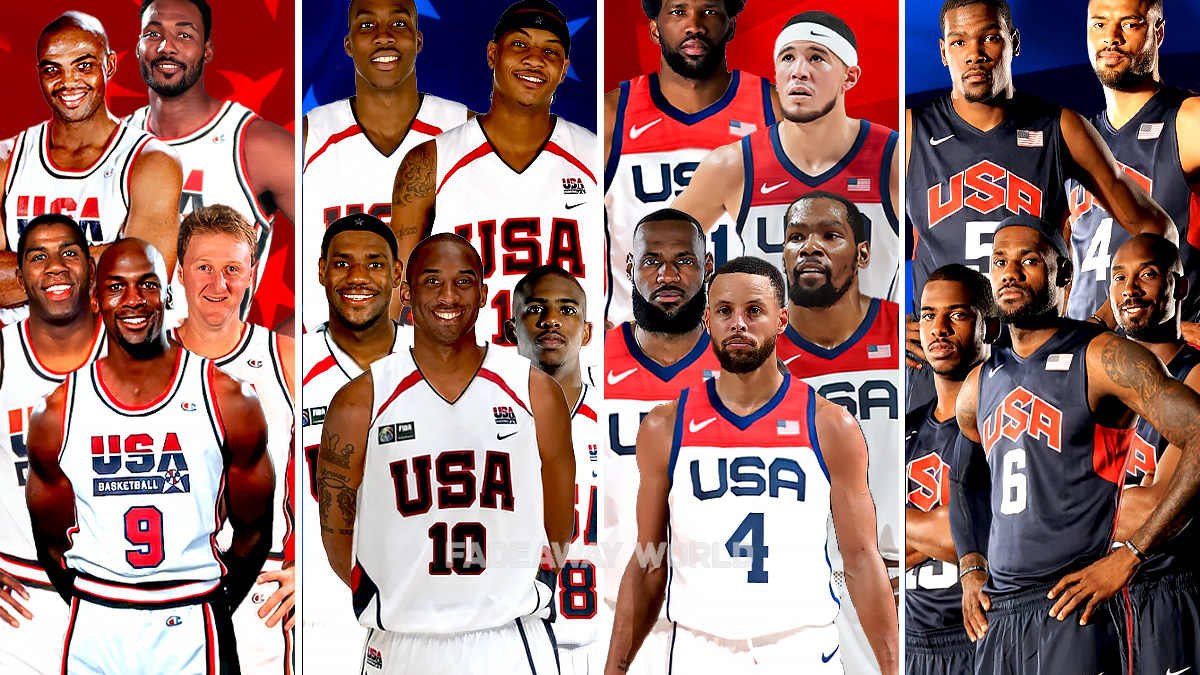Ranking the Evolution of Team USA Basketball: From the Dream Team to the Present Era

Ranking the Evolution of Team USA Basketball: From the Original Dream Team to the Modern Era
As the anticipation for the Olympic Games escalates, the spotlight shines brightly on Team USA, a powerhouse in international basketball. Over the years, the composition and performance of Team USA have evolved, reflecting changes in the sport and its global dynamics. This article delves into the historical progression of Team USA, from the iconic 1992 squad to the present, offering a detailed examination of each team's unique impact and legacy.
The Dream Teams: A Comparative Analysis
The term "Dream Team" is synonymous with basketball excellence, originally coined for the 1992 U.S. Olympic Basketball Team. This team not only dominated the Olympics but also left a lasting imprint on international basketball. Here, we explore the various iterations of the Dream Team and their performances over the years.
The Original Phenomenon: 1992
The 1992 Barcelona Games marked the debut of NBA players in the Olympics, and with it, the assembly of the first Dream Team. Comprised of legends like Michael Jordan, Magic Johnson, and Larry Bird, this team crushed opponents by an average of 41.8 points per game, transforming basketball into a global spectacle. Their overwhelming dominance and star power set a high bar for future teams.
The Redeem Team: 2008
Following a disappointing bronze medal in 2004, the 2008 Team USA, known as the "Redeem Team", sought to restore American dominance. Under the leadership of Kobe Bryant and guided by coach Mike Krzyzewski, this squad featured stars like LeBron James, Carmelo Anthony, and Dwyane Wade. Their journey was challenging, culminating in a hard-fought victory against Spain in the finals with a score of 118-107.
Continued Excellence: 2012 and 2016
The 2012 team in London displayed sheer talent with players like Chris Paul, Kobe Bryant, LeBron James, and Kevin Durant. They maintained high scoring margins and secured gold against Spain in a closely contested final. The 2016 squad in Rio, featuring Kyrie Irving, Kevin Durant, and Paul George, also demonstrated robust teamwork and strategic prowess, overpowering Serbia in the final by 30 points.
Challenges and Resilience: 2004 and 2021
The 2004 Athens Olympics was a wake-up call for Team USA as they encountered formidable competition from around the world, notably losing to Argentina and settling for bronze. This led to significant changes in team selection and preparation. In 2021, despite an early loss to France, the team, led by a stellar performance from Kevin Durant, bounced back to win gold, with Durant setting the record as the all-time leading scorer for Team USA in the Olympics.
The Future Prospects: 2024
Looking ahead to the 2024 Paris Olympics, Team USA is expected to field a potent mix of seasoned veterans like LeBron James, Stephen Curry, and Kevin Durant, alongside rising stars such as Anthony Edwards and Jayson Tatum. While they are favorites on paper, the increasing competitiveness of international teams poses a significant challenge.
Legacy and Impact
The legacy of the Dream Teams is not just measured by medals but also by their influence on international basketball. Each team has contributed to the global spread of the sport, inspiring a new generation of players and fans worldwide. The evolution of Team USA reflects broader trends in basketball, including the rise of international players in the NBA and strategic shifts in gameplay.
In conclusion, the saga of the Dream Teams offers a fascinating glimpse into the dynamics of international sports and the enduring appeal of Olympic basketball. As Team USA continues to evolve, they carry with them a legacy of excellence and a commitment to showcasing the spirit of competition on the global stage.
With each Olympic cycle, new chapters are written, and the story of Team USA's quest for basketball supremacy continues, reminding us of the transformative power of sport and its ability to unite people across different cultures and continents.




